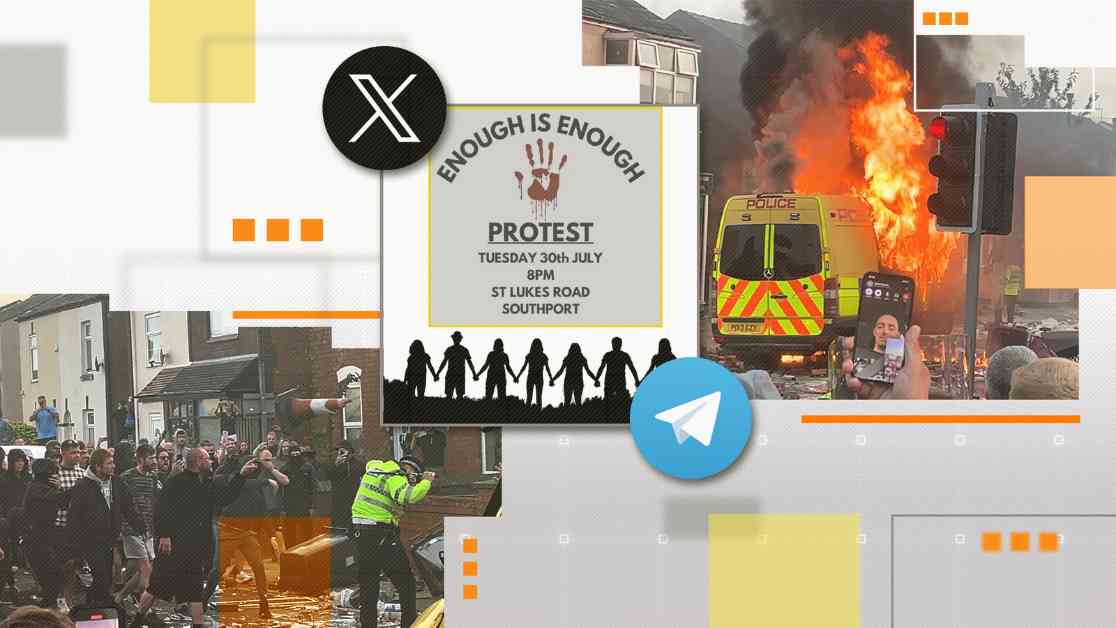Misinformation has fueled far-right discourse in Southport following a violent incident that occurred at a Taylor Swift dance workshop for children. The police and media initially released limited information about the attacker, leading to the spread of false claims and narratives online.
Various accounts on social media platforms quickly began promoting falsehoods about the attacker’s nationality and religion, sparking anti-migrant sentiments. This misinformation gained traction, with some accounts sharing specific details about the attacker, such as a false name and his alleged illegal entry into the UK. However, these claims were debunked by police statements and investigative reports.
Social media monitoring tools revealed a surge in engagements related to Southport and Islam-related terms, indicating the rapid spread of misinformation online. The false narrative was further amplified by clickbait websites seeking to drive advertising revenue. Larger outlets, including a Russian state-controlled news channel, also perpetuated the false information, contributing to the anti-Muslim sentiment surrounding the attack.
The online misinformation campaign coincided with calls for protests in Southport, with the English Defence League (EDL) being blamed for inciting trouble. Despite claims of the EDL being defunct, the far-right movement still operates under various banners, with known activists promoting protests in the area. The protests eventually escalated into a riot, with members of far-right groups, including Patriotic Alternative, being identified at the scene.
The dissemination of misleading information on closed groups and fringe platforms eventually reached mainstream audiences, leading to widespread speculation about the truth being withheld by authorities. Prominent figures like Tommy Robinson and Nigel Farage questioned the official narrative, further fueling distrust and unrest in the community.
The riot in Southport highlighted the dangerous consequences of misinformation and far-right organizing on social media platforms. The incident underscored the need for transparent and accurate reporting to combat false narratives and prevent further violence in the future.
In conclusion, the events in Southport serve as a stark reminder of the power of misinformation in shaping public discourse and inciting real-world consequences. It is crucial for journalists and media outlets to uphold ethical standards and verify information before disseminating it to the public to prevent the spread of falsehoods and protect the community from harm.












